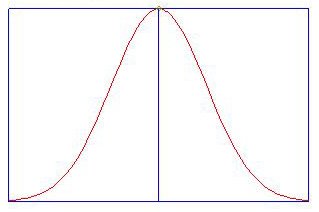- In a 2P system, the ruling party is always voted in with a majority of the popular vote.
Lol, I had to start with this one. Besides being true by the very nature of the system, it means nothing. Hell, a dictator is voted in unanimously. - Unconventional ideas remain non-influential.
Again a true statement, but why should this be desirable? It basically says that unless you are in the mainstream, your opinion doesn't count. In a PR system minority opinions would be represented in proportion to how many people held those opinions. Sounds like that's the way it should be. This is especially important because those who are on the extreme side of an issue can also be the ones who are most correct. My fellow atheists should sympathize with this especially. - Policies and government do not change rapidly.
Public opinion doesn't generally change rapidly so I don't think this is an issue. Besides, this argument is basically that it is advantageous for a government to not be responsive to its people. Also, stability is definitely not a virtue if the thing in question is bad. Dictatorships are also pretty stable. - The dynamics of a 2P system drive both parties toward the middle of the political spectrum.
This statement would be true if it weren't for the fact that both political parties are in the pockets of the wealthy and so are both right-wing (the problem of financing a campaign makes this a necessity for them to even get elected). An example of how the parties pander to the wealthy at the expense of almost all Americans is health care. Roughly 80% of Americans favor universal health care, even if it would raise taxes. However, when it is discussed in the media it is often called "politically impossible". Days before the 2004 election, the New York Times reported that "there is so little political support for government intervention in the health care market in the United States that Senator John Kerry took pains in a recent presidential debate to say that his plan for expanding access to health insurance would not create a new government program", which is exactly what the people want. But of course they don't matter, the insurance and pharmaceutical companies have spoken. So in reality the 2P system is driven to the right of center by other forces. A PR system would make this more difficult as there would be more parties for the companies to have to buy off, and if they managed to buy them all, it wouldn't be difficult to introduce a new party into the system.
But for sake or argument, let's assume that the 2P system actually does drive politicians to the center of the political spectrum. This is still inferior to the PR system for the same reason that in elementary calculus it's better to approximate the area under a curve with more rectangles than with fewer.
This is the 2P system, with only two parties (rectangles) attempting to represent the roughly bell-curve of American political feeling.
Ouch, that sucks.
Here is a PR system with 8 parties participating.
Now that's much better! - 2P systems make it easier for the voter.
Bullshit, Americans can juggle voting for a dozen or so Idols, top models, etc. every week. They can handle a few options every couple of years.
There are also many advantages to the PR system, including a much higher voter turnout. This of course because people can vote for candidates that represent them and they do not feel powerless politically as many in America do. But I won't go into any of these here.
I really don't even know how someone would argue in favor of the 2P system unless they were to employ some sort of elitist "the people don't know what's best for them" authoritarian apologetics. Yet it continues to be the law of the land...
So what can we do? You can't really contact your local representative and complain because they aren't going to help you with it. I guess all one can do is to get involved in educating others and hopefully inspiring them to want a more representative democracy. Maybe one day enough people will care about it that they could force the government to take action and get the laws changed. Or what would be even cooler, we could distribute a bunch of Guy Fawkes masks and descend on the Capitol (for those of you who have seen V for Vendetta, which was awesome btw).

4 comments:
As a self-described Libertarian, I'm definitely with you. I can't support the Republicans: They're anti-abortion and anti-gay. I can't support the Democrats: They're anti-free trade and anti-gun rights. Only the Libertarian party truly represents the majority of my views. However, the US Libertarian party is a joke on the national level, much to the country's detriment.
Down with the 2P system!
Very good post. I was shocked to realise how backwards the US is compared to other countries when it comes to the political process. More and more lately, I've found that there is very little difference between the two parties - both are controlled by contributions (and suggestions) from large corporations. Representing the masses is not what they want to do. But at least people are still free to give up their freedom by supporting free trade.
Don't blame me, I voted for Tweedledum!
Canada also needs a fair voting system. There's more good information on the strengths of proportional voting at http://www.fairvote.ca/ ... although it's more Canada centric.
Post a Comment